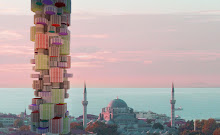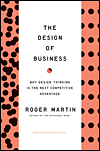A Toronto Star article on the awe-inspiring Greg Mortenson and the ringing of the new year got me thinking again about the plight of the world and the role of global economy and women. A couple months prior I had read a few articles and watched a couple interviews with New York Times' columnist Nicholas Kristof and Sheryl WuDunn, and Vali Nasr - academic and Middle East scholar. Their interviews have continued to replay in my brain like an electronic billboard. The almost bombing of Northwest Flight 253 on Christmas day and the endless stream of suicide bombings in public places in Pakistan has made me reflect even more on the work of Greg Mortenson, Nicholas Kristof and Vali Nasr and the message they have been putting forth on how to dramatically reduce radicalism, extremism and terrorism by essentially improving the plight of humanity. Their message is simple - educate poor women and girls and provide economic opportunities in the ignored corners of the world and much can change for the better.
There is a growing awareness, although from disparate sources, ranging from the World Bank to the U.S. military's Joint Chiefs of Staff to aid organizations that focusing on improving the plight of women and girls around the world is perhaps the most effective way to fight global poverty and extremism. For that reason, Greg Mortenson's work in building girls' schools all over Afghanistan and Pakistan has now been acknowledged by the international community of critical importance. Scholars argue that the reason Muslim countries have been disproportionately afflicted by terrorism has nothing to do with the religion but the low levels of female education and involvement in the workforce. There is increasing proof that empowering women in the developing world is strategically imperative and will do so much to undermine the growth of extremism and terrorism.
Vali Nasr, in his new book Forces of Fortune: The Rise of the New Muslim Middle Class and What It Will Mean for Our World, offers an alternate yet complimentary perspective as to how to stem the tide of religious extremism. According to Nasr, for a long time now, the standard of living in many parts of the Muslim world have been falling; unemployment is constantly growing, the populations are getting younger and younger. Social mobility is rare and with a lack of opportunities, in areas ripe with anger and hopelessness, extremism thrives. Essentially, significant parts of the Muslim world are not included in the global economy in any substantial way; they are not part of the supply chain, production or
 investment and therefore, the more removed people are from the global economy, the more shielded they are from global values and are more willing to lean towards conservatism and extremism. They have not been exposed to the pressures of market forces that generally encourage a moderation in world view. Nasr presents that global values like peace, security, democracy, freedom and human rights, moderation and religious tolerance have not taken hold in Muslim lands, not because of Islam but because the commercial class or middle class that propagate and promote these values are still too small in most of these countries. As adviser to Richard C. Holbrooke (Special Representative to Afghanistan and Pakistan under the Obama administration), he advocates the cultivation of the "critical middle" - the devoutly religious yet very modern. He cites as examples countries like Turkey, Dubai and Malaysia, where economic reforms have helped foster a thriving entrepreneurial, middle class. With rising wealth, Nasr argues, "comes conspicuous consumption, liberal social and political values, and a vested interest in engaging the world.... Those with a stake in commerce and trade will not subscribe to destructive ideas that endanger their futures." Nasr suggests that the U.S. and other western countries build real business ties with countries in the region which do not include oil and weapons; import more products from the Muslim world and help free Muslim economies from the state control.
investment and therefore, the more removed people are from the global economy, the more shielded they are from global values and are more willing to lean towards conservatism and extremism. They have not been exposed to the pressures of market forces that generally encourage a moderation in world view. Nasr presents that global values like peace, security, democracy, freedom and human rights, moderation and religious tolerance have not taken hold in Muslim lands, not because of Islam but because the commercial class or middle class that propagate and promote these values are still too small in most of these countries. As adviser to Richard C. Holbrooke (Special Representative to Afghanistan and Pakistan under the Obama administration), he advocates the cultivation of the "critical middle" - the devoutly religious yet very modern. He cites as examples countries like Turkey, Dubai and Malaysia, where economic reforms have helped foster a thriving entrepreneurial, middle class. With rising wealth, Nasr argues, "comes conspicuous consumption, liberal social and political values, and a vested interest in engaging the world.... Those with a stake in commerce and trade will not subscribe to destructive ideas that endanger their futures." Nasr suggests that the U.S. and other western countries build real business ties with countries in the region which do not include oil and weapons; import more products from the Muslim world and help free Muslim economies from the state control.The U.S War on Terror over the past 8 years seems to have done more to inflame anger in many parts of the world. As errant bombs continue to fall on innocent civilians in Afghanistan and Pakistan, any hopes of a different outcome seems to fade. Western powers have also clearly demonstrated for centuries that they lack the skill and perseverance for nation building. Nine years after 9/11, I can't say I feel any safer every time I'm in line for the security check at the airport.
I know I'm an idealist but imagine - if we diverted the trillions of dollars spent on war and killing, and instead focused on education and creating economic opportunities for the downtrodden - offering humanity around the world, a chance to live humanely, what a different world we might live in. Sometimes, the solutions don't have to be so complicated.
**For more information on Greg Mortenson take a look at this awesome clip:
http://www.cbc.ca/video/#/Shows/The_Hour/ID=1393356940































No comments:
Post a Comment